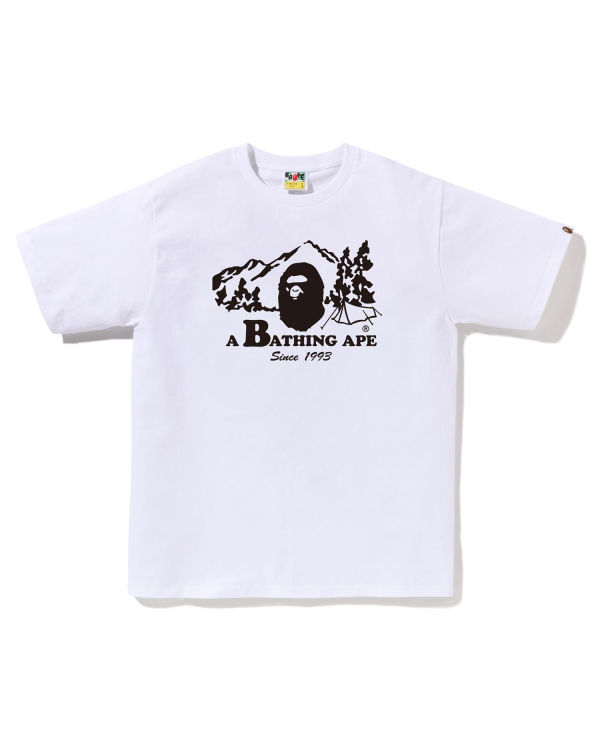
In the world of streetwear fashion, Bape (A Bathing Ape) stands as an iconic brand that has captured the attention of fashion enthusiasts and youth culture worldwide. Known for its bold designs and unique aesthetic, Bape shirts have become a symbol of youth rebellion and subversion. In this article, we will explore how Bape shirts reflect the spirit of youth rebellion, examining the brand’s history, its influence on street culture, its use of provocative imagery, and its impact on the fashion industry.
To understand the reflection of youth rebellion in Bape shirts, we must delve into the brand’s history and its connection to street culture.
Founded in 1993 by Tomoaki Nagao, known as Nigo, Bape emerged during a time when streetwear was gaining popularity as a form of self-expression among the youth. Nigo himself was a fan of hip-hop culture and embraced street fashion as a means of rebelling against mainstream norms. Bape shirts were crafted with the intention of standing out and challenging the status quo, capturing the rebellious spirit that resonated with young people seeking to assert their individuality.
Bape’s influence on street culture and its reflection of youth rebellion can be seen in its use of provocative imagery and designs.
The brand is known for its bold graphics, often featuring characters and symbols that push boundaries and challenge societal norms. Bape shirts frequently incorporate provocative elements such as camo patterns, animal prints, and vibrant colors, which catch the eye and convey a sense of rebellion. By using these unconventional and attention-grabbing designs, Bape encourages the wearer to break free from societal expectations and embrace their own unique identity.
Furthermore, Bape’s collaborations with other streetwear brands and artists have been instrumental in reflecting youth rebellion.
By partnering with like-minded individuals and brands, Bape creates a sense of camaraderie and unity among rebellious youth. Collaborations with artists such as KAWS and Futura 2000, as well as brands like Supreme, have resulted in unique designs that challenge traditional notions of fashion and blur the lines between art and clothing. These collaborations provide a platform for artistic expression and subversion, allowing Bape shirts to become wearable works of rebellion and self-expression.
In addition to its designs, Bape’s impact on youth rebellion can be seen in its engagement with subcultures and countercultures.
The brand has embraced and celebrated subcultures such as hip-hop, skateboarding, and street art, providing a space for these communities to express themselves through fashion. Bape shirts have become a symbol of belonging and identification for individuals who align themselves with these subcultures, embodying the rebellious spirit and embracing the alternative lifestyles associated with them. Bape’s engagement with subcultures has fueled its popularity and allowed it to cultivate a loyal following of rebellious youth.
Moreover, Bape’s influence on youth rebellion extends beyond its own brand and has had a lasting impact on the fashion industry.
The brand’s success in capturing the spirit of rebellion and subversion has challenged traditional fashion norms and paved the way for streetwear to be recognized as a legitimate form of self-expression. Bape’s ability to blend high fashion with street culture has shattered preconceived notions of what is considered fashionable, inspiring other brands to embrace alternative narratives and unconventional aesthetics. The popularity of Bape shirts has sparked a fashion revolution, giving rise to a new generation of designers and artists who push boundaries and redefine the industry.
Furthermore, Bape’s impact on youth rebellion can be seen in its influence on popular culture and celebrity endorsements. The brand’s association with influential figures in music, sports, and entertainment has further solidified its rebellious image. Bape shirts have been worn by musicians such as Kanye West, Pharrell Williams, and Jay-Z, as well as athletes like LeBron James and Cristiano Ronaldo. These celebrity endorsements not only serve as a testament to the brand’s cool factor but also reinforce its association with rebellion and subversion. Bape has become a symbol of authenticity and rebellion, attracting a diverse range of individuals who seek to challenge societal norms.
In conclusion, Bape shirts reflect the spirit of youth rebellion and subversion. The brand’s history, its use of provocative imagery, its engagement with subcultures, and its impact on the fashion industry all contribute to its representation of rebellion. Bape shirts embody the desire to break free from societal expectations, encouraging individuals to embrace their own unique identity and express themselves authentically. As the brand continues to evolve and inspire, Bape shirts will undoubtedly remain a powerful symbol of youth rebellion and subversion in the world of streetwear fashion.